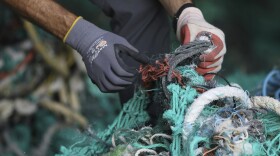Earlier this week, The New York Times published an opinion piece that carried the headline "Want to Be Less Racist? Move to Hawai?i."
The article suggests the islands can serve as a model for the rest of the country in fostering racial harmony. But racial disparities and discrimination cases here present a harsher reality.
The story, which paints a somewhat rosy picture of Hawai?i as a multiracial melting pot, has generated social media buzz and criticism locally.
The article is based largely on research conducted by Kristin Pauker, a University of Hawaii M?noa psychology professor. She found that grade-school students in Hawai?i didn’t stereotype people as much as their mainland counterparts did.
She attributes that to the state’s high percentage of mixed-race people who don’t easily fall into stereotypes.
"A lot of times your assumptions are challenged and you go through these experiences where they are challenged. And I think that it’s those experiences that are really important to changing how people think about race and ethnicity here," she said.
But Akiemi Glenn sees the complexities of race relations in Hawai?i and says they can’t be easily explained. Glenn is the executive director of the P?p?lo Project, a non-profit working to make African-Americans more visible in Hawai?i.
"Rather than say this is a paradise and essentially a racial rehab for white people, where they can come and be cleansed of their racism, there’s a lot more context, a lot more nuance that should be a part of that conversation," she said.
Punihei Lipe, director of the new Truth, Racial Healing and Transformation Center at UH M?noa, said Hawaii is not a paradise for its indigenous people.
Speaking in Hawaiian, she said Native Hawaiians still struggle with health problems, affording housing and education.
Lipe believes the idea of Hawai?i as America’s melting pot masks issues like institutional racism and colonialism that live on in the islands.
Micronesians is the most recent migrant group to experience discrimination here. Josie Howard is the program director for We Are Oceania, a community organization seeking to empower Micronesians in Hawai?i.
"There are the races that are accepted in Hawai?i and there are those that are not accepted yet. And when you look at the history of migration into Hawai?i, you can see that those that came also had their struggles to fit in and what not until they did," she said.
Last year, the Hawai?i Civil Rights Commission received dozens of race-based complaints covering reported discrimination in areas like housing and employment. And while hate crimes are rare, they have been documented here.
But Glenn said there’s a lot to learn from the controversy sparked by The New York Times article.
"This is a wonderful opportunity for us as a community in Hawai?i to be able to set the terms of this conversation and not necessarily have to rely on institutions as venerable as the New York Times to be able to interpret our experience for us," she said.
Glenn hopes people start thinking about these hard issues and engage in conversations on race with the intention of creating a better, more just Hawai?i for everyone.




